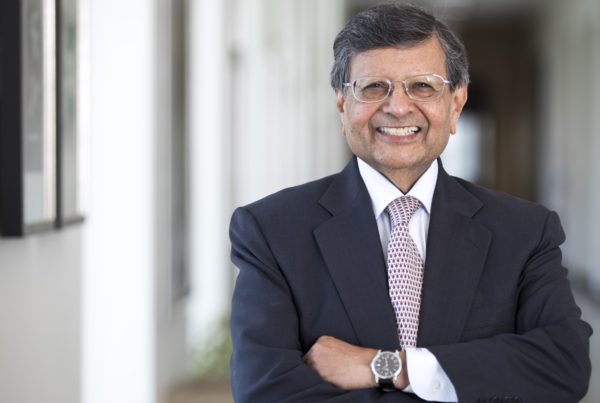Published: Apr 12, 2006 in Knowledge@Emory
The controversy over a plan to give the new Dubai-based buyer of Peninsular and Oriental Steam Navigation Co. (P&O), control over six major U.S. port terminals continues to gain steam as Democrats and Republicans unite to try to scuttle the deal and the President threatens to veto their efforts. The ostensible controversy centers on DP World, which is owned by the Dubai government, and the issue of port security. But some faculty at Emory University and its Goizueta Business School along with other experts say there may be a different, broader concern: a concern that the U.S. Congress and the public are being kept in the dark about deals being struck by the federal government.
While acknowledging the need to safeguard confidential information, experts at Emory and elsewhere also insist it’s vital to exercise oversight when it comes to transactions that affect the public. Developing such a model they add is as simple as looking to the Sarbanes-Oxley Act.
Does the federal government have an obligation to be more open?
“Any time that the government is involved in business, there’s a need for transparency,” says Jagdish Sheth, a professor of marketing and corporate strategist at Emory University’s Goizueta Business School. “Much of the anger over ‘Portgate’ springs from a fear of being left in the dark about important negotiations. People get nervous when their elected representatives make deals behind closed doors, since that can lead to situations like the Bay of Pigs or the Iran-Contra affair.”
In the Bay of Pigs, then U.S. President John F. Kennedy, a Democrat, secretly supported efforts to overthrow Cuban leader Fidel Castro. The Iran-Contra controversy, which took place under the watch of Republican President Ronald Reagan, focused on weapons that were illegally sold to Iran, with the proceeds being diverted to insurgents who were fighting against the Sandinista government of Nicaragua. In the wake of those events and others, argues Sheth, the American public wants a watchdog to keep an eye on the government.
A secretive review process
Similar concern was recently voiced by C. Fred Bergsten, director of the Institute for International Economics and a former assistant secretary of the federal Treasury for international affairs in an editorial, titled “Avoiding Another Dubai” that appeared in the Washington Post.
Bergsten is also a former chairman of the Committee on Foreign Investment in the United States (CFIUS). That group reviewed Dubai’s planned acquisition of P&O and concluded that it wouldn’t pose any security risks to the U.S., despite reports that a Dubai company may have supplied Pakistani nuclear technology to Iran, Libya and North Korea. Bergsten writes that although his former committee wasn’t obligated to inform Congress or the President of the deal, it was a “major flaw” not to inform Congress “of pending transactions in a way that would enable lawmakers to express meaningful objections in an orderly manner.”
Calling the CFIUS review process “opaque and secretive,” Bergsten says that “Congress can therefore express its concerns only by leaping into individual cases with great fanfare, as in the current case and, even more so, when Congress in effect vetoed the bid for Unocal by the China National Offshore Oil Corp. last year even before that deal was considered by the CFIUS.”
“The decision about the port deal probably would be controversial no matter what happened, but the lack of visibility certainly added to the debate,” says Randall W. Strahan, an associate professor in Emory University’s Department of Political Science. “This also represented an opportunity for the President’s opponents to take political swipes. Of course, it didn’t help that the Administration was seen as being heavy-handed in the way it’s been handling the affair. You could say it’s been a perfect political storm.”
A business deal becomes political fodder
Meanwhile, Thomas C. Arthur, a professor of antitrust law at Emory’s School of Law, says that more transparency and discussion would have helped to dampen the controversy over the management of the ports. But he still thinks the overall issue would still have been a tempting target for politicians.
“In some sense we’re seeing ‘bumper sticker’ arguments,” he observes. “The really substantive issues aren’t being discussed.”
Indeed, the issues may have gotten more muddied earlier this month when CNN and other media outlets reported that DP World’s port bid was boosted by an unlikely source: the CEO of Israel’s largest shipping firm.
“During our long association with DP World, we have not experienced a single security issue in these ports or in any of the terminals operated by DP World,” said Idon Ofer, CEO of Integrated Shipping Services to CNN. “We are proud to be associated with DP World and look forward to working with them into the future.”
Although Arthur says that greater transparency about the impending deal [which has been suspended during a 45-day review] may have reduced tensions, he also notes that genuine security issues are sometimes best handled behind closed doors.
“Think of President Nixon’s trip to China that reversed American policy towards the Mainland,” he says. “The groundwork for it had to be laid by Secretary of State Kissinger in secret—otherwise it probably would have unraveled.”
One solution: Sarbanes-Oxley
“In some cases, there are legitimate security concerns that call for closed-door activity,” Sheth cautions. “So perhaps the spotlight on government activities should be projected using formal mechanisms, like oversight that safeguards necessary secrets while ensuring that everyday activities or embarrassing incidents don’t get shielded by a ‘Top Secret’ designation. It could be a kind of Sarbanes-Oxley initiative that focuses on the government.”
Passed by Congress after Enron and other accounting and business scandals, the Sarbanes-Oxley Act of 2002 established a public company oversight accounting board, beefed up rules about auditor independence and corporate responsibility, and enhanced financial disclosure.
Strahan says it’s too early to tell if any kind of meaningful oversight will emerge from the port scuffle, but suggests that in any event the White House would be wise to bring Congress into more discussions. Sheth makes a similar point.
“Sarbanes-Oxley doesn’t require companies to disclose trade secrets, but it does make top executives responsible, and potentially criminally liable, for certain representations made by their company,” he says. “In a government setting, the President would have to sign off on certain representations. If it turned out they were false, he could be subject to impeachment. It could go a long way to restoring faith in the government and its actions.”
Counterpoint: It’s the terrorism
George Benston, a finance professor at Goizueta, isn’t so sure the controversy over Dubai is just a matter of politics.
“The usual reason someone invests in a particular asset is because they have some comparative advantage, such as achievement of economies of scale or scope, application of expertise, effects on risk from co-variance of cash flows, and from other benefits that are somehow linked,” he says. “In the absence of all except the last, I thought that the other benefits could include destruction of the infidel–the United States.”
Dubai, he notes, was one of three countries that recognized the Taliban [who according to reports tried to establish an Islamic theocracy in Afghanistan and who sheltered Al Qaeda leader Osama Bin Laden]. “Was this because the rulers believed in their “virtues” or because they were afraid not to recognize them?” asks Benston. “Either way is reason for concern.”
For Benston, dismissing the uncertainty as to Dubai’s allegiance may be a risky proposition. Benston notes, “The potential cost exceeds the benefits to the United States of more efficient port operation.”




